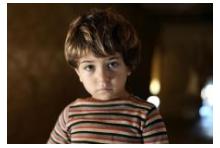Children in Lebanon Are in Crisis — You Can Help
The ongoing war in Lebanon is devastating children’s lives. Many are injured, displaced, and deeply traumatised. Children are experiencing overwhelming fear, anxiety, and emotional distress. Without school or safe spaces to heal, they are left vulnerable and unsupported.
This conflict comes on top of a growing crisis—3.9 million people are already in need of humanitarian aid, and 75% of children are at risk of poverty. As the situation worsens, the consequences for children could be catastrophic.
“The attacks on Lebanon are killing and injuring children at a frightening rate and devastating any sense of safety and security.”
— Edouard Beigbeder, UNICEF Representative in Lebanon
UNICEF is on the ground delivering urgent support:
- Psychological first aid for traumatised children
- Safe water, nutrition, healthcare, and hygiene kits
- Shelter supplies for displaced families
Since late September, we’ve reached over 9,600 children and caregivers with emergency mental health support—but we urgently need to reach more.
All donations help—big, small, regular and one-off.
But the best way to help is by becoming a regular donor. Your ongoing support provides long-term care and stability for children living through crisis—not just now, but into the future.
Please donate today and help protect the children of Lebanon.
